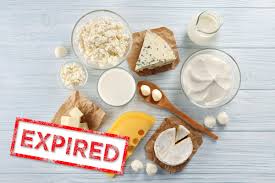Dangers in consuming expired products

By Kayode Ojewale
Many Nigerians are not in the habit of checking products’ expiry dates. For those who do, they do only for consumables (mostly food and drugs). In fact, when it comes to cosmetics, toiletries, insecticides, disinfectants, body spray and other personal care products, the checking of the expiry dates on the product label is not taken seriously, yet the consequences of consuming or using any expired product can result in serious complications. When expired edibles are consumed, the consequential effect may not instantly manifest but it certainly does with time.
No doubt, we are what we consume! We are a reflection of what we daily feed the body with, whether internally or externally. To a large extent, a man’s health is determined by his nutrition, nourished, undernourished or malnourished. The reason is not far-fetched.
The Greek physician, Hippocrates, who is regarded as the Father of Medicine, in 390 BC, established the strong nexus between food and medicine, and came up with a medical advice which has now become a general quote: “Let your food be your medicine and your medicine be your food.”
It is scary to note that while concerned agencies are making efforts to thwart activities of peddlers of expired products, some relabelled expired food and drugs would have made their ways to the markets without the relevant agencies’ knowledge. Only the perpetrators nabbed in these nefarious acts made the news.
So, the big question is: How do consumers identify and recognise relabelled or revalidated food and drugs? Let us now attempt some answers to that multimillion naira poser.
Expiry dates and best-before dates are dates which are interchangeably being used by manufacturers to convey a date when a product is at its peak performance or no longer fit to consume. Technically, there is a slight difference: Expiry dates show the last day that is expected for a product to be used or consumed, while the best-before date indicates that as from that date, the product’s freshness along with its quality is no longer guaranteed.
The expiry date of a product is safety-based, while the best-before date is quality driven. Both are however important no matter which terminology or wording is used by the manufacturer’s label on the product.
A product’s expiry date or best-before date is usually determined by the shelf life of that product. According to a US Food and Administration website, “a product’s shelf life generally means the length of time you can expect a product to look and act as expected and stay safe for use. The length of time varies depending on the type of product, how it is used and how it is stored”.
Personal care products, cosmetics, daily needs, foods, beverages, drugs, toiletries and other consumables and perishables all have varying shelf lives based on product content, raw material quality and sanitary conditions.
Temperature, water and air are the main factors which determine the storage and shelf life of a product.
For example, drugs are to be kept in a cool and dry place in order to take care of temperature and moisture exposure.
Expiry date label on products only holds true for unopened or sealed products but when a sealed product has been opened, the best-before date can no longer be relied on.
Ojewale wrote from Idimu, Lagos (kayodeojewale@gmail.com)
